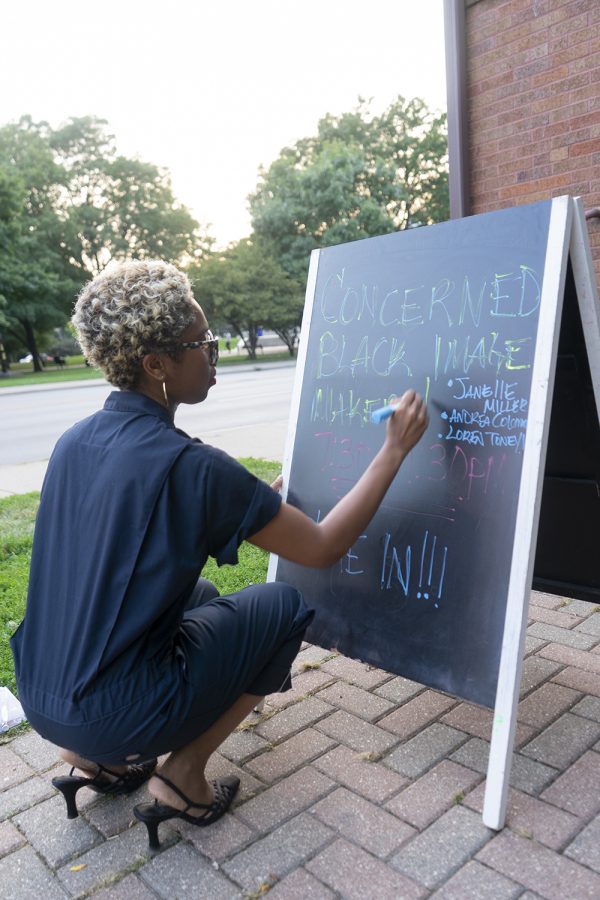Nonprofit creates ‘comfort’ space for black visual artists
September 13, 2019
What appears to be a small, one-room house in the middle of Logan Square is actually a nonprofit called Comfort Station, and during the month of September, the inconspicuous little building becomes host for an artist empowerment series titled the Preparation, Organization, Wonderment, Empowerment, Resistance Project, or the P.O.W.E.R. Project.
Earlier this month, members of the Concerned Black Image Makers hosted a two-part series event, “Through a Lens Intimate,” at Comfort Station, 2579 N. Milwaukee Ave., in partnership with the P.O.W.E.R. Project. The series featured talks from black “lens-based and photo adjacent artists.”
Two Columbia graduates, Loren Toney and Andrea Coleman, spoke during the Sept. 9 event.
Zakkiyyah Najeebah, co-founder of Concerned Black Image Makers, said the program is moving away from traditional, formal artist lectures.
“This series started because we really wanted to have artists share their work with us in a storytelling format rather than speaking about the work using academic language or in an way that was very insular,” Najeebah said. “[The series is] really diving into their personal experiences and how those things affect the work they’re creating, as well as telling stories behind the images.”
Concerned Black Image Makers is a community resource to not only help facilitate dialogue and collaborative projects for black artists, but to support and critique the representation of black stories, according to the organization’s mission statement.
Many in the audience shared experiences of how a typical academic setting does not always allow artists of color to feel understood or to fully express their art. Beyond academia, there is a hegemonic trend in institutions and corporations of commodifying black culture while still alienating black artists, said G’Jordan Williams, the other co-founder of Concerned Black Image Makers.
“Being proactive is just about making sure that as we move forward in whatever technological age or cultural age we move through, we’re able to empower ourselves through art and practice,” Williams said.








